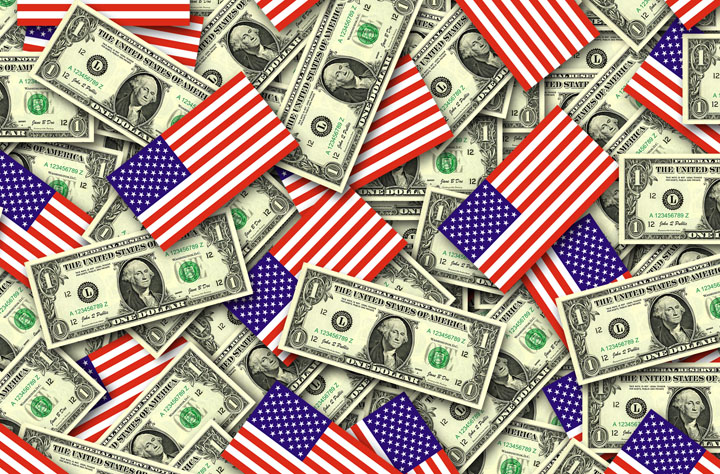With another hotly contested election now behind us, it’s time to take a fresh look at the way campaigns are financed — and how the money that’s raised and spent affects the outcome, not to mention the tone, of a campaign.
State officials are already studying Maine’s clean election law in the wake of a U.S. Supreme Court decision outlawing matching funds for publicly financed candidates who find themselves outspent by opponents who rely on private funding. And on the eve of Tuesday’s election, we learned of a loophole in the state’s financial disclosure law that allows last-minute contributions to remain anonymous until well after Election Day.
Clearly, Mainers’ determination to conduct elections that are above board and protective of the integrity of the electoral process is, at least to some extent, being thwarted in today’s fast-paced, big-money, high-tech political environment.
And in this environment, it’s not beyond the realm of possibility that public funding of election campaigns is an idea whose time has come — and gone.
Public financing was a flop in last year’s gubernatorial campaign, with only one of the five candidates taking clean election funds and much of the money flying around the campaign being spent by interest groups not directly connected with any of the candidates. The Clean Election Act was so irrelevant to the election, in fact, that some of the law’s detractors have proposed removing gubernatorial races from the system.
CHANGES FROM THE COURT
Then came the Supreme Court decision striking down an Arizona law dealing with matching funds, basically cutting the heart out of the fundamental premise of public financing. If publicly financed candidates have to stand by and watch privately funded opponents bury them with cash, there doesn’t seem to be much incentive to rely on public funding.
The main idea behind the system, of course, is to minimize the influence of big-money donors in elections, but if taking public money renders a candidate noncompetitive, what’s the point?
The proposals floated by the state ethics commission to save the system have left us underwhelmed, we must say. But Maine’s voters authorized the Clean Election Act in a referendum 10 years ago, and there’s no reason to believe that they’ve given up on the idea.
So we encourage the state to make a serious effort to save the system. But doing so will require more than the minor tweaks that have been suggested so far; we need a thorough re-evaluation of the entire system, its goals and its mechanisms for achieving those goals.
Meanwhile, the state’s contribution disclosure laws need an overhaul as well. It was revealed this week that a group opposing same-day voter registration had received $274,000 in contributions after the Oct. 25 reporting deadline — which meant that the identity of the donor or donors would not have to be disclosed until Dec. 20.
Perfectly legal. Totally unfair.
NO DISCLOSURE
When that much money pours into an election campaign less than two weeks before Election Day, voters deserve to know where it came from. Did it change the essence of the decision voters had to make? No. But election advertising, especially in the closing days of a campaign, can influence voters’ thinking and frame the debate. Knowing the identity of donors can help the electorate gauge their motives and put the message those donors are paying for in perspective.
With today’s technology, there’s no reason that campaign contributions can’t be instantly disclosed and disseminated, but the law must require it. Campaigns and donors won’t provide such disclosure if they don’t have to.
The treasurer of the No on 1 — Secure Maine’s Ballot, the group that received the last-minute influx of $274,000, told a reporter that he believes it would be a good idea for political action committees like his to identify such contributors but decided not to because the law doesn’t require it.
Easy solution: Change the law to require it.
The financing of political campaigns has been a constant source of debate and controversy in this country, often focusing — as so many issues do — on the philosophical gulf that separates conservatives from liberals, Republicans from Democrats.
Conservatives believe that campaign contributions are expressions of free speech and therefore should be not be regulated. Liberals believe that big money unduly affects election results and influences officeholders after the votes are counted.
This is a disagreement that may never be resolved. But as long as there is a consensus among voters that some semblance of control and accountability is needed, we ought to make sure our laws reflect reality and not some pie-in-the-sky ideal of how the system should work.
Send questions/comments to the editors.



Success. Please wait for the page to reload. If the page does not reload within 5 seconds, please refresh the page.
Enter your email and password to access comments.
Hi, to comment on stories you must . This profile is in addition to your subscription and website login.
Already have a commenting profile? .
Invalid username/password.
Please check your email to confirm and complete your registration.
Only subscribers are eligible to post comments. Please subscribe or login first for digital access. Here’s why.
Use the form below to reset your password. When you've submitted your account email, we will send an email with a reset code.